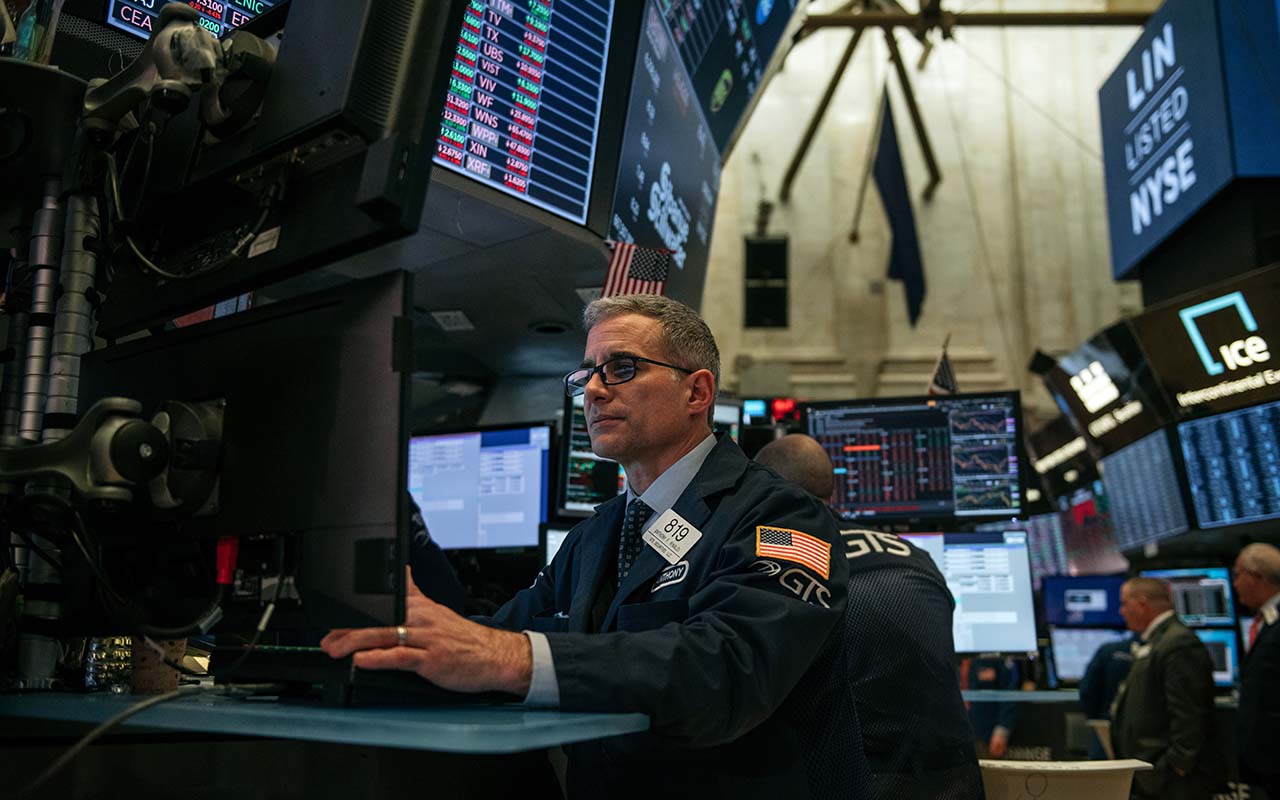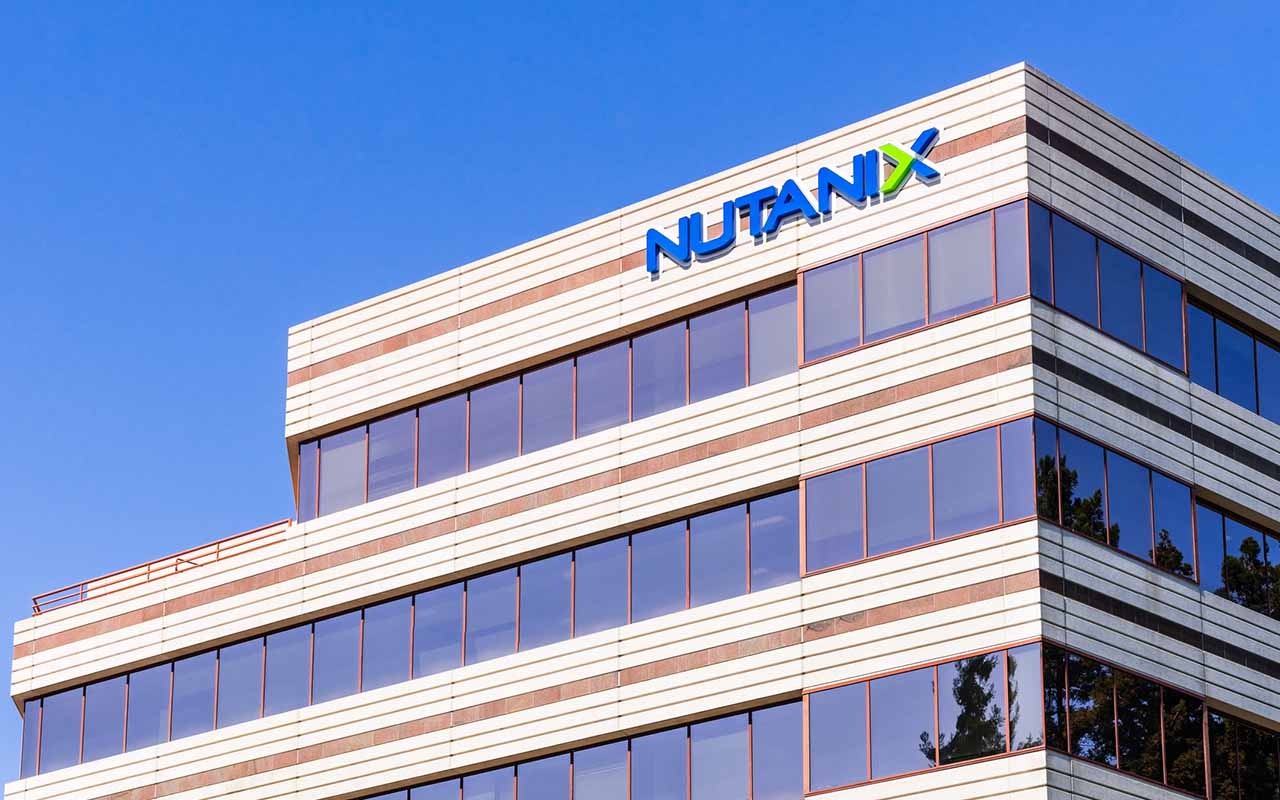The 5 Best Stocks (And 5 Worst) of the Coronavirus Correction
The rapid spread of the COVID-19 coronavirus is wreaking havoc across the equity market.


Profit and prosper with the best of Kiplinger's advice on investing, taxes, retirement, personal finance and much more. Delivered daily. Enter your email in the box and click Sign Me Up.
You are now subscribed
Your newsletter sign-up was successful
Want to add more newsletters?

Delivered daily
Kiplinger Today
Profit and prosper with the best of Kiplinger's advice on investing, taxes, retirement, personal finance and much more delivered daily. Smart money moves start here.

Sent five days a week
Kiplinger A Step Ahead
Get practical help to make better financial decisions in your everyday life, from spending to savings on top deals.

Delivered daily
Kiplinger Closing Bell
Get today's biggest financial and investing headlines delivered to your inbox every day the U.S. stock market is open.

Sent twice a week
Kiplinger Adviser Intel
Financial pros across the country share best practices and fresh tactics to preserve and grow your wealth.

Delivered weekly
Kiplinger Tax Tips
Trim your federal and state tax bills with practical tax-planning and tax-cutting strategies.

Sent twice a week
Kiplinger Retirement Tips
Your twice-a-week guide to planning and enjoying a financially secure and richly rewarding retirement

Sent bimonthly.
Kiplinger Adviser Angle
Insights for advisers, wealth managers and other financial professionals.

Sent twice a week
Kiplinger Investing Weekly
Your twice-a-week roundup of promising stocks, funds, companies and industries you should consider, ones you should avoid, and why.

Sent weekly for six weeks
Kiplinger Invest for Retirement
Your step-by-step six-part series on how to invest for retirement, from devising a successful strategy to exactly which investments to choose.
The rapid spread of the COVID-19 coronavirus is wreaking havoc across the equity market. The S&P 500 lost nearly 13% from Feb. 19 to Feb. 28 – the fastest descent from all-time highs into correction territory in market history.
Virtually all stocks have been affected by the growing scare. The worst stocks of the correction so far have all been pummeled by issues stemming from coronavirus – in particular, from the resulting rout in oil prices. Most of the best stocks (a handful of companies that managed to finish in the black) delivered gains based on the revenue opportunity that COVID-19 potentially represents, though a couple benefited from completely unrelated good news.
To get a sense of what worked and what didn't, we screened the Russell 1000 Index, which includes the thousand largest companies on the U.S. equity market, for the best- and worst-performing stocks during the steep drawdown from Feb. 19 to Feb. 28. Both the Russell 1000 and S&P 500 lost 12.8% over that period – predictably, biotechnology, travel and energy stocks were well represented among the stocks with the biggest moves.
There were also a couple of pleasant surprises.
Have a look at the five worst and five best stocks coming out of the market's epic February plunge.
Data, provided by S&P Global Market Intelligence, is as of Feb. 28.

Worst #5: Mednax
- Market value: $1.4 billion
- Dividend yield: N/A
- Performance: -35.7% (vs. -12.8% for the S&P 500)
- Mednax (MD, $17.09), a medical outsourcing network of specialist physicians, has been one of the worst stocks of the coronavirus correction – but for reasons totally unrelated to COVID-19.
On Feb. 20, Dow component UnitedHealth Group (UNH) said it was canceling contracts with the company. Mednax said the UNH contracts represented 2% of its 2019 revenue. Moody's immediately put the company's credit ratings under review for a downgrade.
UnitedHealth said it's terminating the contracts because Mednax's prices are too high. That said, a few analysts pointed out that the termination of contracts won't necessarily come to pass.
"They may turn out to be a negotiating tactic by UNH, as such threatened terminations often are," writes BMO Equity Research analyst Matt Borsch.

Best #5: Etsy
- Market value: $6.8 billion
- Dividend yield: N/A
- Performance: +8.7%
Shares in Etsy (ETSY, $57.81) took off after the company delivered a beat-and-raise fourth-quarter report, fueled by a strong holiday selling season. Indeed, the online marketplace for handmade apparel and accessories posted a whopping 35% increase in revenue.
"Etsy's fourth-quarter results came in ahead of expectations and guidance, as continued platform enhancements drove strong holiday performance," writes Canaccord Genuity.
The market is also bullish on the company's introduction of its Offsite Ads feature, in which Etsy works with sites like Alphabet's (GOOGL) Google and Facebook (FB) to promote sellers' listings on their pages. Needham says the new ad service "changes the game for 2020."
It has been one of the best stocks since the start of the correction, with a nearly 9% gain while the vast majority of Russell 1000 stocks suffered losses. If consumers further avoid brick-and-mortar retail amid the outbreak, Etsy could be set up for more outperformance given its presence as an online-only retailer. However, if the coronavirus cuts deep enough into consumer spending, Etsy and its purely discretionary products would still be at risk.

Worst #4: Nutanix
- Market value: $4.6 billion
- Dividend yield: N/A
- Performance: -36.3%
Traders rushed out of Nutanix (NTNX, $23.84) after the company missed analysts' quarterly estimates. The cloud-computing company reported a loss of $1.13 a share – steeper than the loss of 68 cents in last year's second quarter. Even worse, Nutanix issued a downbeat earnings outlook.
The stock has been in a downtrend since late 2018, losing 60% since June of that year. While it rebounded somewhat during Q4 2019, the latest batch of bad news wiped out most of the recovery.
Coronavirus wasn't responsible for the loss, but it is affecting how fast the company is hiring new employees.
"We would like to have more clarity to see if there might be any further potential disruption related to the impact of the coronavirus and whether that disruption spreads to other parts of the world," CFO Duston Williams said on a conference call with analysts.
TOOL: Stimulus Check Calculator (How Much Will You Get?)

Best #4: Regeneron Pharmaceuticals
- Market value: $48.9 billion
- Dividend yield: N/A
- Performance: +10.9%
COVID-19 has been a nightmare for almost every stock in the market, but not for Regeneron Pharmaceuticals (REGN, $444.57). Indeed, only two stocks in the S&P 500 posted gains last week, and biotechnology stock REGN was the leader. (The other positive stock was chipmaker Qorvo (QRVO), which rose 2.4%.)
The spread of coronavirus has been a catalyst for REGN as the company as it scrambles to develop products aimed at the disease. "The company is working to develop treatments to fight the coronavirus," says Miller Tabak & Co. analyst Matt Maley. "That's why it's seen a nice rally."
Other analysts see additional drivers, however. Credit Suisse analyst Evan Seiger (Outperform, equivalent of Buy) raised his price target on REGN shares on Feb. 26, continuing to call it his best stock for 2020. He believes headline risk to competitor Novartis' (NVS) eye drug Beovu means good things for Regeneron's Eylea, which has a good long-term safety record.
REGN gained more than 10% during the early stages of the stock market correction and now is up nearly 19% for the year-to-date.

Worst #3: Sabre
- Market value: $3.7 billion
- Dividend yield: 4.1%
- Performance: -39.1%
Shares in air carriers, cruise line operators and other travel stocks are getting hammered by coronavirus, and Sabre (SABR, $13.62) is no exception. The company, which provides software and services to airlines, hotels and booking agents, is taking the sharp decline in global travel hard.
The company has been upfront about the harm to its business. "While we hope its impact is short-term in nature, we anticipate that the coronavirus will have a material impact on our 2020 financial results, and at this point, no one can predict the timeline and ultimate effects of the outbreak," CEO Sean Menke said on a conference call with analysts.
William Blair Equity Research, which rates shares at Market Perform (equivalent of Hold), notes that COVID-10 could impact first-quarter revenue by $100 million to $150 million. Free cash flow (the cash left over after the company spends and invests to maintain and expand its business) could be cut by $50 million to $80 million.

Best #3: Alkermes
- Market value: $3.3 billion
- Dividend yield: N/A
- Performance: +11.6%
- Alkermes (ALKS, $20.84) was one of the best stocks of the coronavirus recession's early stages, but that's about the extent of it. The biotech stock, which is developing treatments for alcohol dependence and schizophrenia, has been in a downtrend for more than two years. Heck, it's off nearly 40% over the past 52 weeks.
ALKS topped Wall Street expectations when it reported quarterly results on Feb. 13, but shares sold off on the news. "Given the adverse market reaction to an overall unsurprising quarter, it's increasingly clear that it's going to take more tangible progress to shift investor sentiment," writes JPMorgan analyst Cory Kasimov. "Unfortunately, we don't see what that trigger might be over the near-to-intermediate term, as 2020 is shaping up as a relatively quiet year."
The stock did pick up momentum a few days later, in part on news that Sarissa Capital Management LP, run by biotech activist investor Alex Denner, made a $75 million bet on the company during the fourth quarter.
Nonetheless, as welcome as ALKS's very short-term performance has been, investors might be wise not to expect sustainable gains.

Worst #2: Kosmos Energy
- Market value: $1.2 billion
- Dividend yield: 5.9%
- Performance: -41.6%
The energy sector is being hit especially hard by coronavirus because it poses a threat to everything from air travel to manufacturing.
However, oil and gas exploration company Kosmos Energy (KOS, $3.05) has more problems than just COVID-19.
In late January, Kosmos was forced to plug and abandon an exploratory well in the Gulf of Mexico that failed to find significant oil and gas deposits. And like its peers, KOS carries a lot of debt. As of the end of 2019, Kosmos has $2 billion in long-term debt versus $225 million in cash and cash equivalents.
Kosmos ended 2019 with a full-year loss of 5 cents a share. Analysts expect the company to report full-year losses of 13 cents and 5 cents this year and in 2021, respectively. For the current quarter, KOS is forecast to post a net loss of 11 cents a share on an adjusted basis. Those numbers might be acceptable for a high-growth tech IPO, but not a long-struggling energy small cap.

Best #2: Domino's Pizza
- Market value: $13.1 billion
- Dividend yield: 0.9%
- Performance: +14.3%
- Domino's Pizza (DPZ, $339.46) is one of the best stocks of the past decade, and it's flying high in 2020 as well. Shares in the pizza chain blasted off Feb. 20, rallying about 28% in a single session on a better-than-expected quarterly report. Heavy short interest in the name helped amplify the gains, as bearish traders found themselves in a short squeeze.
DPZ's outside performance had little to do with coronavirus, though its positioning as a mostly delivery-based restaurant might help its appeal among consumers hesitant to visit more crowded sit-in locations.
Valuation could be a longer-term concern, however. After gaining 50% in a little more than six months – including a pullback from that Feb. 20 rally – a number of analysts think DPZ stock is too expensive relative to its growth prospects.
"Although we remain highly confident in the near- and long-term growth outlook for the company, we believe the expectations likely embedded in the current price create a less compelling risk/reward setup," writes Stifel, which said they would prefer to be buyers on a pullback.

Worst #1: Chesapeake Energy
- Market value: $537.4 million
- Dividend yield: N/A
- Performance: -42.6%
Speaking of energy exploration companies being crushed by debt and soft prices of oil and gas, Chesapeake Energy (CHK, $0.28) – once a darling of the U.S. shale revolution – is trading like a penny stock.
CHK is off more than 90% over the past 52 weeks. For the five days ended Feb. 28, it shed more than 40% of its value, and it was booted from the S&P MidCap 400. The selling accelerated last week after Chesapeake's fourth-quarter report missed revenue expectations and gave a downbeat outlook on commodities prices. Additionally, it announced plans for a reverse stock split. With shares trading so low, CHK runs the risk of eventually being delisted.
Investors are increasingly concerned about the company's debt load. CHK carries more than $9 billion in long-term debt, and the bond market is increasingly worried about whether the company is good for it.
Chesapeake's 11.5% bonds maturing in 2025 have 28% last week to 57 cents on the dollar, Bloomberg reports. The yield on those bonds, which reflects a bond's risk, stands at almost 30%.

Best #1: Moderna
- Market value: $8.7 billion
- Dividend yield: N/A
- Performance: +37.1%
Traders are betting big-time on Moderna (MRNA, $25.93) as the biotechology firm works to develop a vaccine for COVID-19.
"On corona, our only focus as a team is public health," CEO Stéphane Bancel said on a conference call with analysts. "People are sick all over the planet. People are dying. But this is our only focus, is to get a vaccine as fast as we can safely, partnering with the right people to get it done."
MRNA blasted off in the middle of last week after it said it sent the first batch of a coronavirus vaccine to the National Institute of Allergy and Infectious Diseases. Shares quickly gave up a big chunk of those gains but still ended last week up more than 37%.
Profit and prosper with the best of Kiplinger's advice on investing, taxes, retirement, personal finance and much more. Delivered daily. Enter your email in the box and click Sign Me Up.

Dan Burrows is Kiplinger's senior investing writer, having joined the publication full time in 2016.
A long-time financial journalist, Dan is a veteran of MarketWatch, CBS MoneyWatch, SmartMoney, InvestorPlace, DailyFinance and other tier 1 national publications. He has written for The Wall Street Journal, Bloomberg and Consumer Reports and his stories have appeared in the New York Daily News, the San Jose Mercury News and Investor's Business Daily, among many other outlets. As a senior writer at AOL's DailyFinance, Dan reported market news from the floor of the New York Stock Exchange.
Once upon a time – before his days as a financial reporter and assistant financial editor at legendary fashion trade paper Women's Wear Daily – Dan worked for Spy magazine, scribbled away at Time Inc. and contributed to Maxim magazine back when lad mags were a thing. He's also written for Esquire magazine's Dubious Achievements Awards.
In his current role at Kiplinger, Dan writes about markets and macroeconomics.
Dan holds a bachelor's degree from Oberlin College and a master's degree from Columbia University.
Disclosure: Dan does not trade individual stocks or securities. He is eternally long the U.S equity market, primarily through tax-advantaged accounts.
-
 Dow Leads in Mixed Session on Amgen Earnings: Stock Market Today
Dow Leads in Mixed Session on Amgen Earnings: Stock Market TodayThe rest of Wall Street struggled as Advanced Micro Devices earnings caused a chip-stock sell-off.
-
 How to Watch the 2026 Winter Olympics Without Overpaying
How to Watch the 2026 Winter Olympics Without OverpayingHere’s how to stream the 2026 Winter Olympics live, including low-cost viewing options, Peacock access and ways to catch your favorite athletes and events from anywhere.
-
 Here’s How to Stream the Super Bowl for Less
Here’s How to Stream the Super Bowl for LessWe'll show you the least expensive ways to stream football's biggest event.
-
 Dow Leads in Mixed Session on Amgen Earnings: Stock Market Today
Dow Leads in Mixed Session on Amgen Earnings: Stock Market TodayThe rest of Wall Street struggled as Advanced Micro Devices earnings caused a chip-stock sell-off.
-
 Nasdaq Slides 1.4% on Big Tech Questions: Stock Market Today
Nasdaq Slides 1.4% on Big Tech Questions: Stock Market TodayPalantir Technologies proves at least one publicly traded company can spend a lot of money on AI and make a lot of money on AI.
-
 Fed Vibes Lift Stocks, Dow Up 515 Points: Stock Market Today
Fed Vibes Lift Stocks, Dow Up 515 Points: Stock Market TodayIncoming economic data, including the January jobs report, has been delayed again by another federal government shutdown.
-
 Stocks Close Down as Gold, Silver Spiral: Stock Market Today
Stocks Close Down as Gold, Silver Spiral: Stock Market TodayA "long-overdue correction" temporarily halted a massive rally in gold and silver, while the Dow took a hit from negative reactions to blue-chip earnings.
-
 Nasdaq Drops 172 Points on MSFT AI Spend: Stock Market Today
Nasdaq Drops 172 Points on MSFT AI Spend: Stock Market TodayMicrosoft, Meta Platforms and a mid-cap energy stock have a lot to say about the state of the AI revolution today.
-
 S&P 500 Tops 7,000, Fed Pauses Rate Cuts: Stock Market Today
S&P 500 Tops 7,000, Fed Pauses Rate Cuts: Stock Market TodayInvestors, traders and speculators will probably have to wait until after Jerome Powell steps down for the next Fed rate cut.
-
 S&P 500 Hits New High Before Big Tech Earnings, Fed: Stock Market Today
S&P 500 Hits New High Before Big Tech Earnings, Fed: Stock Market TodayThe tech-heavy Nasdaq also shone in Tuesday's session, while UnitedHealth dragged on the blue-chip Dow Jones Industrial Average.
-
 Dow Rises 313 Points to Begin a Big Week: Stock Market Today
Dow Rises 313 Points to Begin a Big Week: Stock Market TodayThe S&P 500 is within 50 points of crossing 7,000 for the first time, and Papa Dow is lurking just below its own new all-time high.
